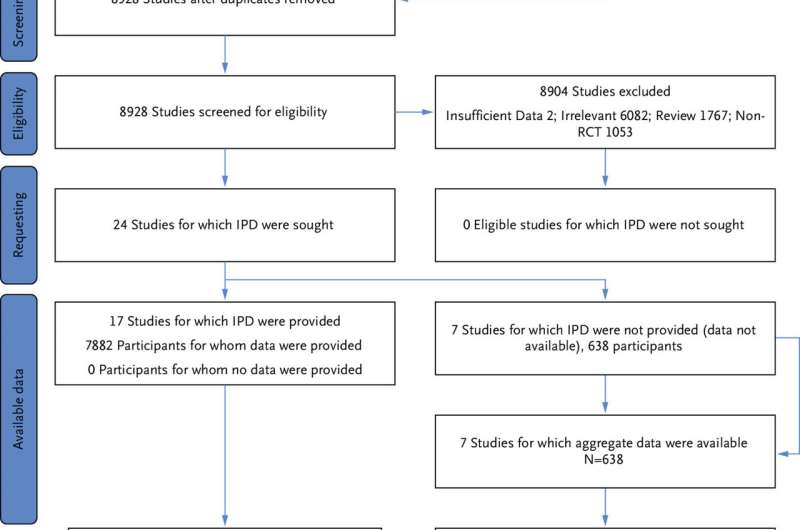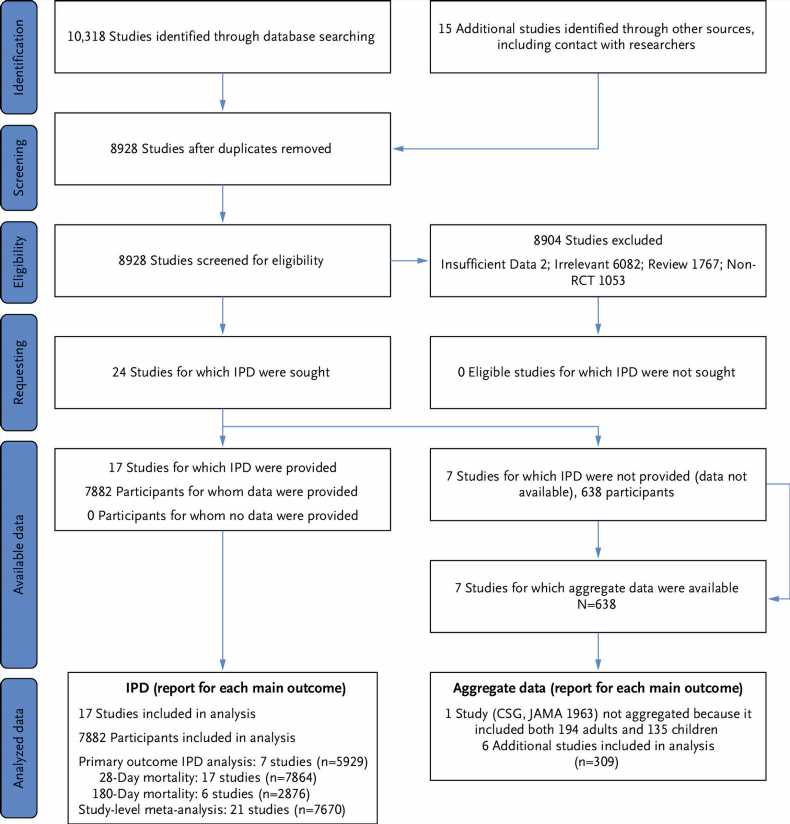
Sepsis is a global health priority affecting 55 million patients worldwide and causing 11 million deaths annually. Treatment for sepsis may include prompt recognition, source control, antibiotics, fluids, vasopressors, and adjunctive therapies. Corticosteroids have been evaluated as adjunctive therapy for septic shock for more than 50 years. Despite this substantive body of research, uncertainty persists about the effects of corticosteroids on mortality.
In a study publishing in the New England Journal of Medicine: Evidence, an international team of researchers from UC San Francisco, Raymond Poincaré AP-HP Hospital, Versailles SQY University, Paris-Saclay University and Inserm, and the George Institute for Global Health in Sydney, studied the role of hydrocortisone in the management of adult patients with septic shock.
They found that while the effect of hydrocortisone was modest in terms of overall survival, it was associated with a decrease in the need for vasopressor drugs and improvement in survival when used in combination with other corticosteroids.
The study, coordinated by first authors Romain Pirracchio, MD, MPH, Ph.D., UCSF Professor of Anesthesia, Djillali Annane, MD, Ph.D., and senior author Anthony Delaney, MBBS, MSc, Ph.D., was designed to evaluate the role of corticosteroids in the management of patients with septic shock and the contradictory effects on mortality as recorded in past research and treatment.
The research team performed a meta-analysis of the effect of hydrocortisone on patients with septic shock by pooling individual data from studies conducted between 1998 and 2019 including adult patients with sepsis or septic shock who received intravenous hydrocortisone at a maximum daily dose of 400 mg for at least 72 hours, or a placebo. Individual patient data were available for 17 studies, and 7 of these provided 90-day mortality data. The primary endpoint was 90-day all-cause mortality.
Secondary outcomes included mortality in ICU and discharge from hospital, at 28 and 180 days, and number of days without the need for vasopressor drugs to maintain cardiovascular function, without a ventilator, and the number of days without vital organ failure.
The researchers found that hydrocortisone was not associated with a significant reduction in mortality for patients with septic shock compared to placebo. Hydrocortisone was, however, associated with a significant increase, on average of 1.24 days, in the number of days without the need for vasopressor drugs.
The study also suggests that the association of fludrocortisone, a corticosteroid with a strong action on the regulation of water and sodium, with hydrocortisone might reduce mortality.
“For the first time, the effects of hydrocortisone for the treatment of patients with septic shock could be studied by analyzing individual data from the main randomized trials published to date,” said Pirracchio. “This study shows that if the effect of hydrocortisone on the mortality of septic shock is modest, this treatment makes it possible to spare the exposure of patients to vasopressor drugs and to prevent their complications. The combination of fludrocortisone with hydrocortisone seems to provide a greater benefit in terms of survival.”
More information:
Romain Pirracchio et al, Patient-Level Meta-Analysis of Low-Dose Hydrocortisone in Adults with Septic Shock, NEJM Evidence (2023). DOI: 10.1056/EVIDoa2300034
Journal information:
NEJM Evidence
Source: Read Full Article
